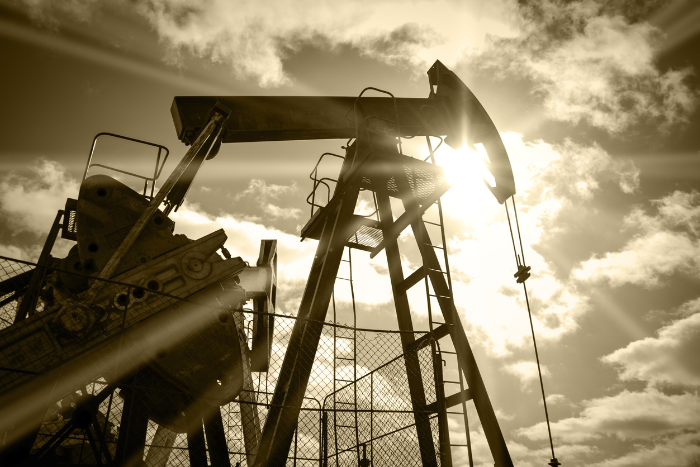IMF is placing exploitation for the export of hydrocarbon raw materials at the centre of its repayment policy, making it difficult for the countries of the Global South to react to the climate crisis, finds a new report
A new report has shed light on the International Monetary Fund’s (IMF) agreements with Argentina, resulting in more and more fracking in the country. According to the report, the conditions led by the financial organisation has pressured the country to speed up the exploitation of Vaca Muerta (which translates as ‘dead cow’), a 30,000 sqkm deposit located in Northern Patagonia. It is the second-largest shale gas basin in the world and the fourth-largest unconventional oil basin.
‘The IMF, its climate policy and the conditions for Argentina’ by Recourse and Periodistas por el Planeta was compiled on the basis of information contained in public IMF documents.
The report said the deposit is capable of diverting the goals of the Paris Agreement, not only for Argentina but globally. The exploitation technique used is fracking or hydraulic fracturing, which has an enormous impact on the atmosphere due to the emission of CO2, methane and volatile organic compounds, the report stated. In addition to causing irreversible damage to the territory, it also demands an intensive use of water where it is scarce, causing serious damage to the health of people and the environment and infringing human rights, it added.
The contradictory actions
The report said IMF documents from 2016 onwards proclaim that Vaca Muerta is a key part of the country’s economic solution, not only by reducing energy imports, but also by outlining an export horizon in the short term.
Throwing light on the IMF’s stance in Argentina, the report said that while the institution has been pressuring the Argentine government to reduce subsidies for the population’s energy consumption, with the subsequent increase in rates, it does not question the use of public funds in the payment of incentives to companies that extract unconventional gas, which since 2016 have reached a total of USD 4,000 million.
The report mentioned that the World Bank also questioned the sustainability of this model, saying that hydrocarbon activity can bring benefits to the private sector, but could generate risks to the Argentine State such as stranded assets, as international demand for fossil fuels falls. The IMF placing intensive exploitation for the export of raw materials at the centre of its repayment policy makes it difficult for the countries of the Global South to react to the climate crisis, warned the report.
In such cases, when extreme events hit commodity production, like the drought in Argentina in 2023 that had losses equivalent to almost half of what was owed to the IMF, it keeps on pushing debtor countries to deepen unsustainable economic models in the environment and social areas.
Need for a stronger stance
Despite these environmental concerns, the report said the IMF supported Argentina’s use of fossils for large-scale export so as to balance fiscal accounts and have the capacity to repay debt. According to the report, the IMF has relied on the idea of establishing carbon pricing as a tool to confront the climate crisis, instead of focusing on underlying policies that could question the expansion of the fossil fuels frontier.
The report questioned the IMF’s climate policy in this context and pointed at the financial organisation’s potential to accelerate the changes needed to keep global temperatures from exceeding 1.5°C. In fact, emissions from the country, which is the 25th largest emitter according to the IMF, increased 3.3% since the climate treaty came into force. In order to meet with the climate goals voluntarily adopted by Argentina, the country would have to reduce its emissions 7% in absolute terms by 2030.
Ways to amend
One of the authors of the report, María Di Paola researcher from Periodistas por el Planeta said, “In fact, the current climate strategy values macroeconomic stability over other objectives, opens the door to the expansion of fossil fuels in countries of the Global South with hydrocarbon reserves to ensure the repayment of debt services and balance of payments stability”.
“Therefore, the “climate concern” of the institution shows a clear contradiction with its usual modus operandi. This encourages countries to reduce fiscal spending and increase exports without analysing the social and environmental impacts, as is the case of Argentina, which requires a wake-up call,” Paola added.
In order to amend the situation, the study made some recommendations. This includes developing a climate strategy that ensures that its short-term interventions are aligned with long-term goals such as the development paths under 1.5°C, with mechanisms for the involvement of governments and civil society.
Then, reducing the ambition of the conditions of IMF’s programs, letting national governments design economic, social and environmental plans that respond to the needs of the citizenship and are aligned with the climate commitments taken on at the international level. Increasing concessional financing that is long-term and without conditions, to prevent countries from having to choose between defaulting or setting aside their development plans to focus on debt repayment in the short term is another critical element that should be part of IMF policy, the report said.
And carrying out thorough analysis on the risks to macroeconomic and financial stability caused by dependence on the export of raw materials (particularly fossil fuels) given the volatility of international prices is a must, the report concluded.
About The Author
You may also like
India’s Budget 2024-25 focuses on capacity building to fight climate change, but lacks details
Study finds that extreme weather events do not draw political attention
India’s EV revolution: Are e-rickshaws leading the charge or stalling it?
India to bear the highest cost globally as climate change increases women’s water collection burden
Hope for 1 lakh trees: Karnataka refuses to handover Sandur forest for mining


